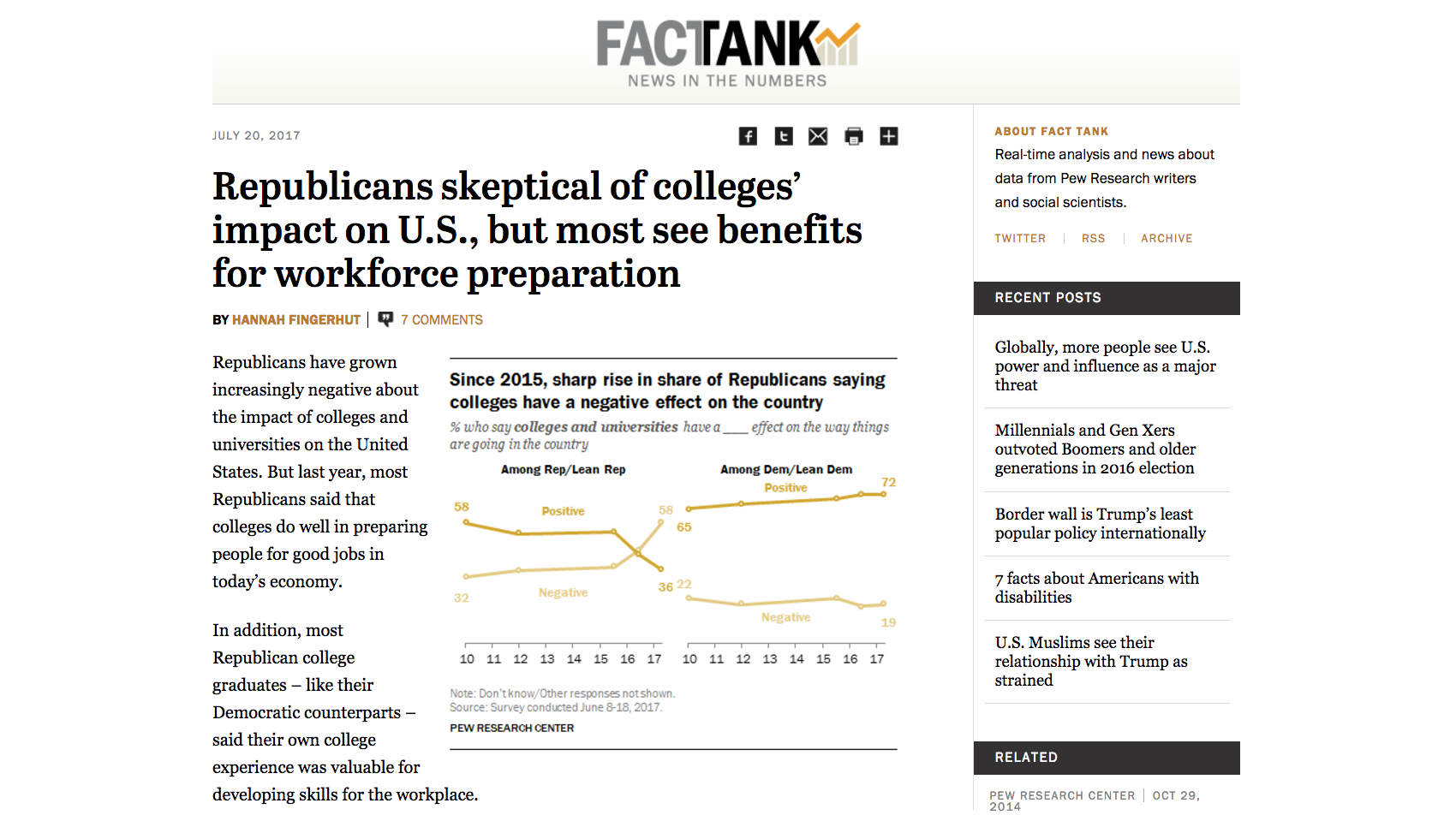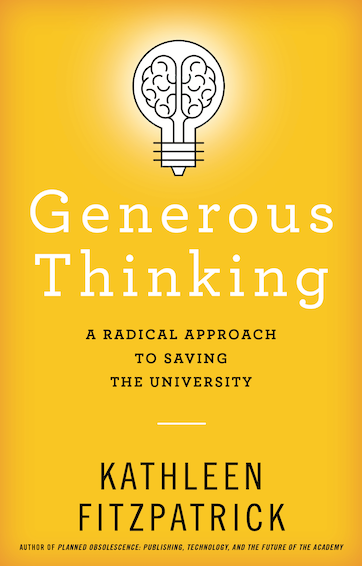4.1 KiB
Generous Thinking
and Diversity and Inclusion
Kathleen Fitzpatrick // @kfitz // kfitz@msu.edu
Note: I want to start by thanking Dean Learman and Karen Eley Sanders for making this conversation possible. I'm going to start with a few brief thoughts about the relationship between generous thinking and the questions of diversity and inclusion that many universities are grappling with today, and then I hope that we can open this up into discussion.
http://www.pewresearch.org/fact-tank
Note: - The problem: the Pew Research Center has recently reported a “larger than normal” decline in public opinion regarding higher education in the United States.
- This decline in public opinion is of a piece with contemporary rejections of many forms of expertise, as documented by Tom Nichols in The Death of Expertise: not just an assumption that one opinion is as good as any other, but an active refusal of anything that presents itself as expert knowledge
- And worse, it’s resulting in slashed public university budgets and a range of other political attacks on institutions of higher education
- The result is that these universities, which were founded to serve the people of their states, or regions, or communities, are decreasingly able to do so
Note: - My argument is that the future of the university, and of the work we do within it, depends on our ability to rebuild caring, trusting relationships with the publics by which our institutions are surrounded, and that the process of doing so asks us to think differently about how we wield our expertise in those relationships
- My sense is that a lot of what I’ve just described could easily be translated to thinking about the medical professions and how they interact with and are seen by the communities they serve
- In the book, I advocate for bringing what I call “generous thinking” to bear in all of the ways that we work, both with one another and with the publics we engage
generosity
Note: - “Generous thinking” is, as I define it, a set of regular practices like meditating or exercise, something that’s never quite complete but to which we return again and again
- So generosity in this sense is not about giving, or about volunteerism, but instead about a willingness to listen, taking “yes, and” rather than “no, but” as the starting place for our responses
- It means a deeper, more complex approach to empathy than is popular represented: not “I feel your pain” but instead “I know I can’t ever really feel your pain but I hear and take seriously your expression of it”
- And it means valuing the experiences of everyone around us, especially those whose experiences are radically different from our own
diversity and inclusion
Note: - Through this kind of generosity, we can begin to build real diversity and inclusion: not just welcoming others into our way of doing things, but opening up the ways we do things to recognize and honor the experiences and values that others bring to the work
- What experiences of misunderstanding or disagreement have you had in the classroom? In clinical settings? What have you taken away from those moments?
- How can bringing more perspectives and experiences to bear within university settings improve the quality of higher education?
- How can bringing more perspectives and experiences to bear in clinical settings improve the quality of patient care?
- How can generous thinking be made a key value of the medical and life sciences community? How can generosity help you grapple with your responsibilities both within this community and to the communities that you serve?
Note: This is where I'd like to open discussion. I've listed a number of questions here, but you may have questions or issues of your own you'd like to discuss. What I'm going to ask you to do is take five minutes or so to talk with your neighbors, and think together about what you'd like to share with the larger group.

